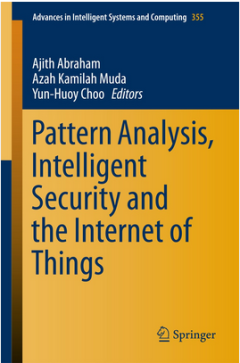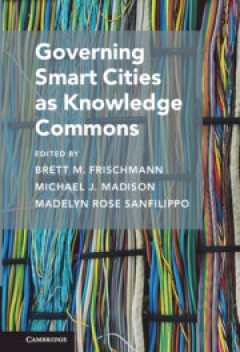Filter by

Proceedings of ELM-2014 Volume 2; Applications
* Penelitian terbaru tentang Mesin Pembelajaran Ekstrim, * Hasil Konferensi Internasional tentang Mesin Pembelajaran Ekstrim (ELM-2014) yang diadakan di Marina Bay Sands, Singapura, 8-10 Desember 2014, * Menyajikan Teori, Algoritma, dan Aplikasi. --> Mesin Pembelajaran Ekstrim (ELM) Itu adalah jenis algoritma pembelajaran mesin. Ini telah menemukan aplikasi di berbagai bidang karena kesederhana…
- Edition
- 4
- ISBN/ISSN
- 978-3-319-14066-7
- Collation
- -
- Series Title
- Prosiding dalam Adaptasi, Pembelajaran, dan Optimalisasi
- Call Number
- 006.3 CAO e

Proceedings of ELM-2014 Volume 1; Algorithms and Theories
* Penelitian terbaru tentang Mesin Pembelajaran Ekstrim, * Hasil Konferensi Internasional tentang Mesin Pembelajaran Ekstrim (ELM-2014) yang diadakan di Marina Bay Sands, Singapura, 8-10 Desember 2014, * Menyajikan Teori, Algoritma, dan Aplikasi. --> Mesin Pembelajaran Ekstrim (ELM) adalah jenis algoritma pembelajaran mesin yang termasuk dalam keluarga jaringan Kecerdasan Buatan. ELM dikenal ka…
- Edition
- -
- ISBN/ISSN
- 978-3-319-14063-6
- Collation
- -
- Series Title
- Prosiding dalam Adaptasi, Pembelajaran, dan Optimalisasi
- Call Number
- 006.3 CAO e

Principles of Noology; Toward a Theory and Science of Intelligence
(1). Memberikan wawasan baru dan mendalam tentang sistem cerdas. (2). Berisi materi pelengkap yang mendemonstrasikan contoh dan proses. (3). Menawarkan kesempatan untuk mempelajari teknik dan metodologi. (3). Membawa pemahaman kuantitatif dan resolusi tinggi kepada pembaca tentang proses nologis Terlepas dari kemajuan luar biasa yang dicapai dalam beberapa tahun terakhir dalam ilmu kognitif…
- Edition
- 3
- ISBN/ISSN
- 978-3-319-32113-4
- Collation
- -
- Series Title
- Komputasi Sosio-Afektif
- Call Number
- 006.3 BEN p

Pattern Recognition and Machine Intelligence, 6th International Conference, P…
Dengan senang hati kami mempersembahkan prosiding Konferensi Iberia ke-7 tentang Pengenalan Pola dan Analisis Citra, IbPRIA 2015. Konferensi ini diadakan di Santiago de Compostela, Spanyol, mengikuti jejak pertemuan sukses sebelumnya di Andraxt (2003), Estoril (2005), Girona (2007), Pó Voa de Varzim (2009), Las Palmas de Gran Canaria (2011), dan Madeira (2013). IbPRIA merupakan konferensi inte…
- Edition
- Vol. 9124
- ISBN/ISSN
- 978-3-319-19941-2
- Collation
- -
- Series Title
- Lecture Notes in Computer Science (LNCS)
- Call Number
- T 006.3 KRY p c.1

Pattern Analysis, Intelligent Security and the Internet of Things
Selamat datang di Melaka, Malaysia, dan Simposium Paralel Kongres Dunia Teknologi Informasi dan Komunikasi Keempat 2014 (WICT 2014) selama 8-11 Desember 2014. Pada abad yang lalu, masyarakat kita telah mengalami beberapa periode perubahan dramatis, didorong oleh inovasi seperti sistem transportasi, telepon. Beberapa dekade terakhir telah mengalami teknologi yang berkembang begitu pesat, menguba…
- Edition
- Vol. 355
- ISBN/ISSN
- 978-3-319-17398-6
- Collation
- -
- Series Title
- Advances in Intelligent Systems and Computing (AISC)
- Call Number
- T 006.3 ABR

The Cambridge Handbook of Responsible Artificial Intelligence: Interdisciplin…
Dalam dekade terakhir, kecerdasan buatan (AI) telah menjadi kekuatan pengganggu di seluruh dunia, menawarkan potensi inovasi yang sangat besar tetapi juga menciptakan bahaya dan risiko bagi individu dan masyarakat tempat mereka tinggal. Volume ini membahas tantangan filosofis, etika, hukum, dan sosial yang paling mendesak yang ditimbulkan oleh AI. Kontributor dari berbagai disiplin ilmu dan sek…
- Edition
- -
- ISBN/ISSN
- 9781009207898
- Collation
- -
- Series Title
- -
- Call Number
- T 343.0999 VOE r c.1

Governing Smart Cities as Knowledge Commons
The rise of “smart” – or technologically advanced – cities has been well documented, while governance of such technology has remained unresolved. Integrating surveillance, AI, automation, and smart tech within basic infrastructure as well as public and private services and spaces raises a complex set of ethical, economic, political, social, and technological questions.
- Edition
- -
- ISBN/ISSN
- 9781108938532
- Collation
- -
- Series Title
- -
- Call Number
- 006.3 FRI g

Cultural-Historical Perspectives on Collective Intelligence: Patterns in Prob…
In the era of digital communication, collective problem solving is increasingly important. Large groups can now resolve issues together in completely different ways, which has transformed the arts, sciences, business, education, technology, and medicine.
- Edition
- -
- ISBN/ISSN
- 9781108981361
- Collation
- -
- Series Title
- -
- Call Number
- 006.3824 BAL c

Artificial Intelligence and International Economic Law: Disruption, Regulatio…
Artificial intelligence (AI) technologies are transforming economies, societies, and geopolitics. Enabled by the exponential increase of data that is collected, transmitted, and processed transnationally, these changes have important implications for international economic law (IEL).
- Edition
- -
- ISBN/ISSN
- 9781108954006
- Collation
- -
- Series Title
- -
- Call Number
- 006.3 PEN a
 Computer Science, Information & General Works
Computer Science, Information & General Works  Philosophy & Psychology
Philosophy & Psychology  Religion
Religion  Social Sciences
Social Sciences  Language
Language  Pure Science
Pure Science  Applied Sciences
Applied Sciences  Art & Recreation
Art & Recreation  Literature
Literature  History & Geography
History & Geography